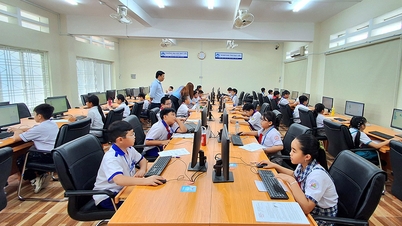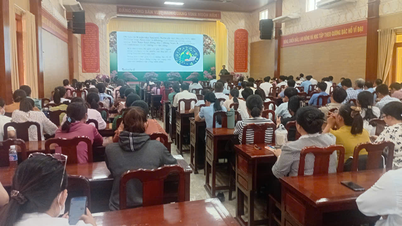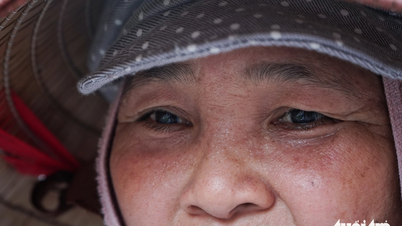Updated date: 09/18/2024 11:12:15

DTO - Complementary feeding (also known as weaning) is a form of supplementing other foods for children in addition to breast milk. According to the recommendations of the World Health Organization (WHO), the time to give children complementary foods is when they are 6 months old (180 days). At this time, the child's development needs are higher, children need more nutrients and energy from many other food sources, breast milk is no longer the only source of nutrition for children as in the previous stage. That is also the reason why children need to practice weaning combined with breastfeeding from the age of 6 months.

Feeding children when they are 6 months old (Illustration)
Currently, many mothers still believe that giving their children complementary foods early will help them become stronger. However, reality has proven that giving children complementary foods before the recommended time will increase the risk of disease because children under 6 months old still lack immune factors to protect their bodies. Complementary foods will be quite thick and not suitable for the immature digestive system and at this stage, children can only digest liquid foods such as breast milk. Breastfeeding less or stopping breastfeeding early also leads to an increased risk of pregnancy in mothers.
On the contrary, when parents give their children complementary foods too late, it will not meet their growth needs, leading to slow growth, increased risk of nutritional deficiencies and malnutrition.
Don’t forget to continue breastfeeding along with complementary foods. Because food only supplements nutrients and cannot replace breast milk. Breast milk provides many antibacterial factors to help children increase resistance and reduce the risk of disease.
Therefore, mothers still need to breastfeed their children fully. When the child can eat well, mothers can gradually reduce the amount of milk and increase the amount of food according to the child's age. When starting to supplement, parents should practice feeding their children from liquid to solid, from little to much so that the child's stomach and digestive system can gradually get used to new foods. Children's daily meals must ensure that they have enough ingredients from the 4 basic food groups: carbohydrates, proteins, fats, vitamins and minerals. At the same time, ensure the diversity of the diet by preparing meals with at least 5 out of 8 food groups as recommended by the World Health Organization. Each type of food only contains a few nutrients in different proportions, so when food diversity is ensured, the nutritional value of the child's meal will increase. Parents also do not forget to add vegetable oil or animal fat to their children's food because it not only makes the meal fragrant, fatty, and more attractive, but also helps provide more energy for children to grow quickly.

Source: Institute of Nutrition
In addition to main meals, children need to eat snacks. A good snack must ensure providing energy and nutrients for children such as: yogurt, dairy products, fruits... Foods rich in sugar cannot replace other foods in the diet, so giving children candy and sugary drinks is not a snack for children.
In addition, when choosing food for children, it must be clean and safe, free of pathogens, no toxic chemicals, no bones or hard objects that can injure children. It is also necessary to choose locally available food, reasonable prices, convenient for preparing and processing dishes for children. According to the National Institute of Nutrition, spices (especially salt) should not be added to food for children under 1 year old, because the kidneys of children under 1 year old do not carry more than 1g of salt per day, the amount of salt in food is enough to meet the needs of children. From 1 year old, children can eat spices, but they must be cooked blandly compared to adults' taste; getting children into the habit of eating bland food from an early age is the best way to prevent cardiovascular, blood pressure and kidney diseases later on.
In case of illness, parents should not be too restrictive. Giving children nutritious, easily digestible, and hygienic food will not affect their condition but will also help them avoid fatigue and weight loss.
Nguyen Ly (CDC Dong Thap )
Source: https://baodongthap.vn/suc-khoe/su-can-thiet-cho-tre-an-bo-sung-khi-tre-tron-6-thang-tuoi-125627.aspx


































































































Comment (0)